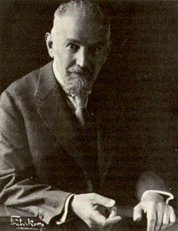
(1871-1938)
Psychologist
Influences
- Student of: Ebbinghaus
- Influenced by:
- Students:
- Influenced:
- Time Period: The Great Schools’ Influence
Education & Career
- University of Berlin, Ph.D. in Psychology (1893)
- University of Breslau, Professor (1897-1916)
- University of Hamburg, Professor of Psychology (1916-1933)
- University of Hamburg, Director of the Psychological Institute (1916-1933)
- Duke University, Lecturer and Professor (1933-1938)
Major Contribution
- The Intelligence Quotient
Ideas and Interests
William Stern decided that “personalistic psychology” or individuality was destined to be the psychological problem of the twentieth century. He attempted to classify people according to types, norms, and aberrations. To Stern, it was in the process of investigating individuality that the real essence of personality and intelligence could be discovered. Stern was influenced by the work of Binet and his studies of intelligence in children. As a result, Stern reviewed the principle findings in the field and developed the idea of expressing intelligence test results in the form of a single number, the intelligence quotient.
Stern’s general definition of intelligence was “a general capacity of an individual consciously to adjust his thinking to new requirements,…a general mental adaptability to new problems and conditions of life.” Two people could adapt to a new situation with different approaches, but if they were equally successful they demonstrated ‘teleological equivalence.’ Stern looked at individual test scores as particular “mental ages” which could then be compared to actual “chronological ages” to determine a degree of advancement. He took the mental age and divided it by the chronological age, and named this ratio the intelligence quotient.
Publication
- The Psychological Methods of Intelligence Testing (1912)
- General Psychology from the Personalistic Standpoint (1938)
References: 8
Image Courtesy of the Archives of the History of American Psychology, The University of Akron
